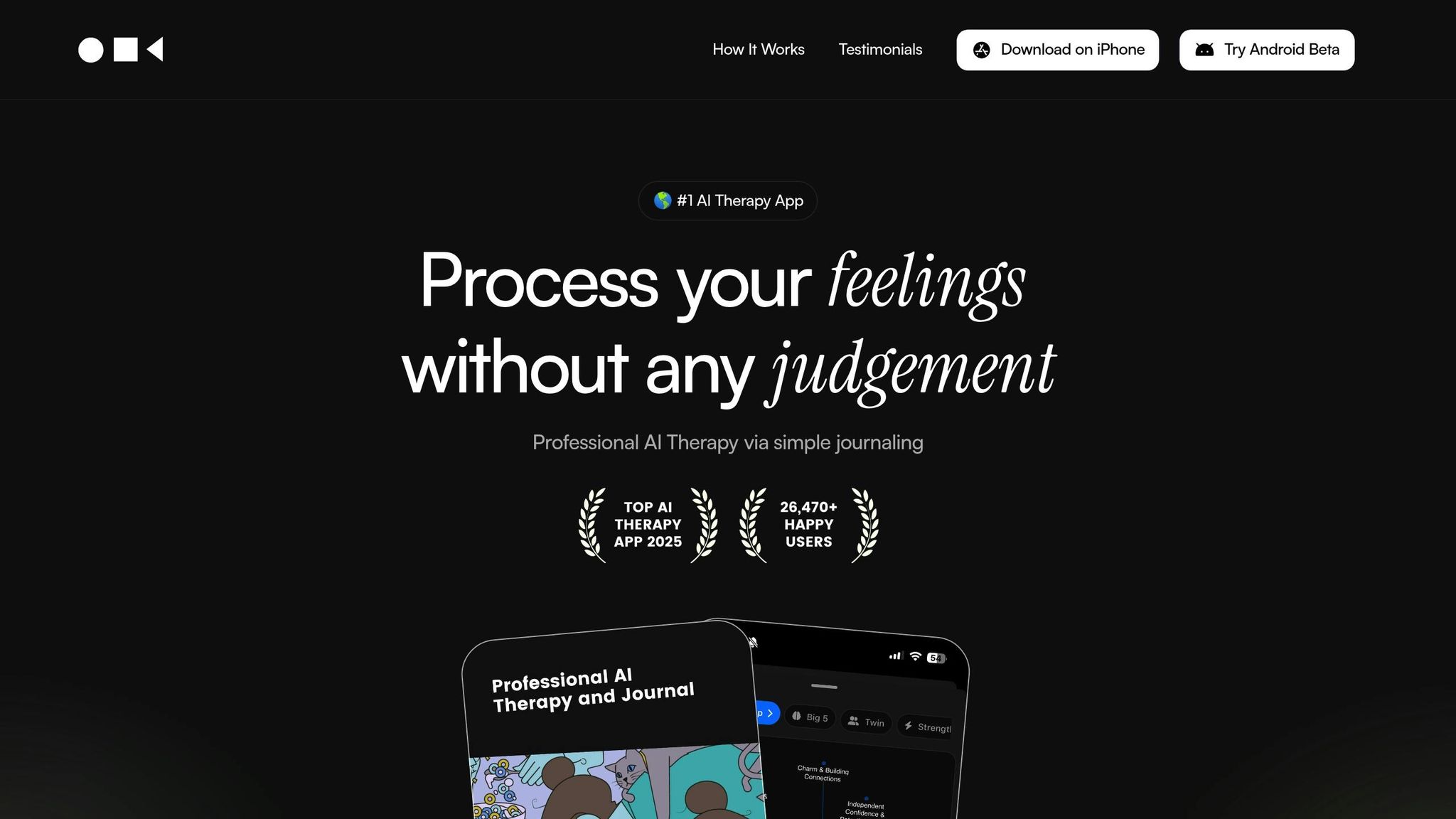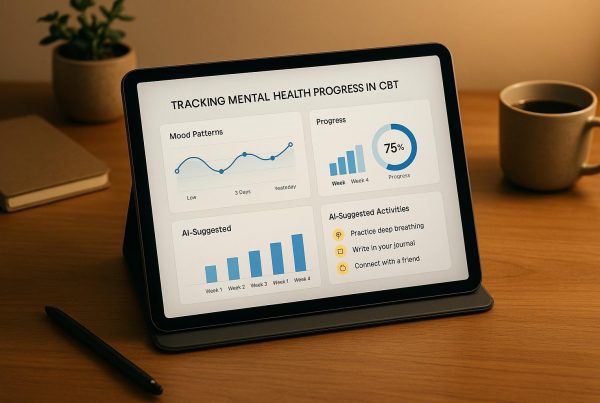The integration of Artificial Intelligence (AI) into mental health services is no longer just a futuristic concept – it’s happening now. In a world increasingly shaped by technology, voice-based AI companions are emerging as a revolutionary tool in addressing mental health challenges. One innovative platform leading the charge is ECHKO, a voice-based conversational AI rooted in existential psychology and digital wellness. Created by Bianca McCall, a retired professional basketball player, mental health expert, and entrepreneur, ECHKO offers a groundbreaking solution to mental health and personal development concerns.
This article will explore how platforms like ECHKO are reshaping mental health care by offering empathetic, secure, and culturally responsive AI companions. We’ll analyze the benefits, potential challenges, and the broader implications for society.
The Rise of AI in Mental Health: A Cultural Shift
AI tools such as ChatGPT have already gained widespread popularity, with users relying on them for tasks ranging from productivity to therapy. However, these generic conversational AI models have significant limitations, particularly when it comes to mental health. Many lack safeguards, cultural responsiveness, and accountability for the information they provide. This creates risks for users who turn to these tools for advice during crises or personal struggles.
Bianca McCall emphasizes that AI isn’t going anywhere; rather, it’s a growing reality of modern life. However, she argues that for AI to become a meaningful asset in mental health, it must go beyond automation and generic responses. This is where ECHKO distinguishes itself by addressing existential concerns – questions about meaning, purpose, life, and death – which underpin many mental health challenges.
What Makes ECHKO Different?

1. Existential Framework
At the core of ECHKO is the "Existential Concerns Questionnaire" (ECQ), which serves as the foundation for the platform. Unlike other AI tools, ECHKO delves into deep, philosophical questions that influence our motivations, values, and sense of purpose. These questions don’t just scratch the surface; they aim to help users explore their thoughts, emotions, and behaviors in more meaningful ways.
McCall illustrates how existentialism bridges the gap between psychology and spirituality, providing a framework for addressing life’s most pressing questions. Whether it’s processing grief, addressing anxiety, or finding purpose, this approach ensures that ECHKO users are supported on a deeper level.
2. Guardrails and Ethical Oversight
One of the most significant criticisms of existing AI platforms is their lack of accountability. Many users don’t realize that when they share personal information with tools like ChatGPT, they relinquish ownership of their intellectual property. More alarmingly, poorly regulated AI models can provide harmful or inappropriate advice, particularly during crises.
ECHKO addresses this through a meticulously designed "if-then" logic model that categorizes risks and determines appropriate responses. Risks such as harm to self or others, implicit biases, and cultural sensitivity are assessed, and the AI is trained to escalate to human intervention when necessary. Additionally, every response is audited by an ethics committee to ensure accuracy and safety.
3. Personalized Voices and Experiences
A standout feature of ECHKO is its ability to use the user’s own voice to create a deeply personalized experience. By training the AI on clinically backed data and decades of research, McCall has made it possible for users to hear their own voices respond to them in an empathetic and constructive manner. This creates a sense of auditory accountability and encourages self-reflection in a way that traditional tools cannot.
For instance, McCall shares a powerful personal experience of using the platform during a moment of anxiety. Hearing her own voice ask, "Why are you afraid of success?" allowed her to process her emotions and arrive at insights she might not have otherwise reached. This personalized, voice-based interaction can help users reframe toxic internal conversations and replace them with compassionate, solution-oriented dialogue.
Addressing Cultural and Individual Needs
ECHKO’s commitment to cultural responsiveness sets it apart from other mental health tools. The platform recognizes that mental health experiences are deeply influenced by factors such as race, ethnicity, gender, socio-economic status, and neurodivergence. To meet these diverse needs, ECHKO adapts its tone, language, and level of compassion based on the user’s context.
Another groundbreaking feature is the ability to create a "suite" of digital companions based on different personalities or expertise. Users can even lease personalities created by therapists or other professionals, allowing for a tailored approach to their unique challenges. This feature is particularly impactful for those who struggle to seek help or identify their mental health needs.
The Intersection of AI and End-of-Life Conversations
One of the most innovative applications of ECHKO is its focus on end-of-life care. Traditional mental health models often avoid conversations about death, despite its centrality to human experience and existential concerns. ECHKO breaks this taboo, offering tools to help users process grief, explore legacy, and confront their anxieties about mortality.
McCall describes this as a "frontier space" where AI can make a profound impact. By providing culturally sensitive and clinically informed support, ECHKO offers a unique avenue for individuals and families navigating the complexities of end-of-life discussions.
Potential Impacts on Society
Platforms like ECHKO represent a paradigm shift in how we approach mental health and personal development. By integrating advanced technology with human expertise, they provide a bridge for individuals who may face barriers to traditional therapy, such as stigma, cost, or access.
Moreover, the focus on existential concerns encourages broader societal conversations about purpose, identity, and collective well-being. As McCall notes, this isn’t just about addressing crises but fostering a mindset of growth, resilience, and human connection.
Key Takeaways
- Existential Focus: ECHKO emphasizes life’s big questions – meaning, purpose, life, and death – making it a unique tool for mental health support.
- Personalized Voices: Users can interact with their own voice, creating auditory accountability and fostering self-compassion.
- Ethical Safeguards: A robust logic model ensures that responses are safe, culturally sensitive, and clinically informed.
- Cultural Responsiveness: The platform adapts to individual needs based on factors like race, gender, and neurodivergence.
- End-of-Life Support: ECHKO provides tools for processing grief and exploring mortality, breaking new ground in mental health care.
- Ownership of Data: Unlike other AI tools, ECHKO allows users to retain full ownership of their data and intellectual property.
- Empowering Help-Seeking: By offering a non-judgmental companion, ECHKO encourages users to identify and address their mental health needs.
- Innovative Monetization: Therapists and professionals can create and share personalities, adding a new dimension to mental health services.
Conclusion
The advent of voice-based AI companions like ECHKO signifies a transformative moment in mental health care. By combining cutting-edge technology with human insight, ECHKO addresses the shortcomings of traditional mental health tools while opening new possibilities for growth, connection, and healing.
This platform stands as a testament to what’s possible when we align technology with empathy and purpose. For individuals and communities seeking accessible and actionable mental health solutions, the future is here – and it’s powered by your own voice.
Source: "Mental Health in the Age of AI: Can It Work? on Watching Mental Health" – PR Connections, YouTube, Aug 21, 2025 – https://www.youtube.com/watch?v=R-dm2TEd0VI
Use: Embedded for reference. Brief quotes used for commentary/review.



